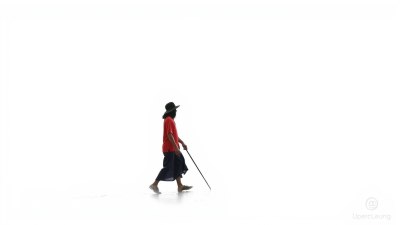The Existential Dread of Dropping Something in a Murky River
Exploring the emotional and philosophical implications of losing objects in murky waters.

This image was created with the assistance of Freepik
The moment one accidentally drops something into a murky river is often fleeting yet profoundly impactful. In that split second, a person can feel an overwhelming sense of loss, not only for the object but also for the symbolic implications. This experience is deeply rooted in human psychology and reflects our innate fears and existential dilemmas.
When you drop an object into a murky river, the immediate reaction is typically shock or dismay. Whether it’s a cherished trinket, a vital piece of equipment, or something as simple as a smartphone, the sinking feeling in the stomach is often accompanied by a flurry of thoughts about what has just transpired. The object, now submerged, becomes a representation of lost control over one’s possessions and, metaphorically, over one’s life.
The Symbolism of Murky Waters
Murky rivers are rich in metaphorical significance. They often symbolize the unknown and the depths of human emotion. When one looks into a murky river, visibility is impaired—the surface appears calm, but beneath it lies a chaotic world. Objects that fall into such waters symbolize lost potential, unfulfilled expectations, and the fear of the unknown. Each droplet of water carries with it a swirl of memories and desires that are now out of reach.
Consider the emotional repercussions of losing a sentimental item. It could be a gift from a loved one or a personal memento from a significant time in your life. Dropping it into the river triggers an existential dread that goes beyond the material loss. It speaks to the fragility of our connections and the ephemeral nature of life’s meaningful moments. We cling desperately to objects that bridge our memories, fearing their disappearance, which can feel akin to losing a piece of ourselves.
The Fear of the Unknowable
The act of dropping something into a murky river forces individuals to confront their fear of the unknowable. What happens to the object now that it is submerged? Will it be lost forever in the depths, or could it potentially resurface at some point? This uncertainty can induce a sense of dread. The water is murky not just because of the physical obscurity but because it embodies the emotional complexity of our lives and experiences.
This experience can prompt deep introspection. It nudges us to examine our attachment to material possessions and the emotional weight they carry. Are we overly dependent on these objects for our sense of self? What does it mean about us when we feel a sense of dread over a lost object? Such questions can evoke powerful realizations about consumerism, attachment theory, and the psychological underpinnings of loss.
The Philosophy of Loss
Philosophically, losing an object can serve as a microcosm of broader existential themes. The ancient philosopher Heraclitus posited that change is the fundamental essence of the universe. When we drop something into a river, we are reminded that nothing remains unchanged. The object may be lost, but this event can serve as a catalyst for growth or transformation. We can choose to see our loss as the end or as a chance to redefine what is valuable in our lives.
The river, with its constant flow, mirrors the passage of time and inevitability. Objects may be lost, but new experiences will inevitably fill that void. Understanding that change is a part of life can ease the existential dread surrounding the act of dropping something into a murky river. It invites acceptance and resilience.
Reclaiming Control
The feeling of dreadful helplessness often accompanies such accidents, but it’s essential to understand that this moment can also be a turning point. Acknowledging that some things are out of our control allows us to confront our fears more constructively. We might choose to let go of the loss in favor of seeking clarity in other aspects of our lives. This act of acceptance is crucial for mental well-being.
Finding ways to reclaim control after such a loss can help dissolve the existential dread experienced. This may involve creating new rituals or establishing new memories that counteract the loss. If a smartphone was lost, for instance, replacing it can lead to exploring new features that enhance the experience. It’s about embracing life’s fluidity and pursuing what fulfills us, even amid loss.
The Journey Within
Dropping something into a murky river can also be symbolic of internal struggles that remain hidden beneath the surface. Each object holds its own narrative, perhaps representing aspects of our identity that we struggle to acknowledge or explore. By reflecting on what we’ve lost, we can learn more about ourselves—the depths where our existential fears reside.
Engaging with these feelings, rather than suppressing them, can foster a journey of self-discovery. Just as the river flows on, we too can seek renewal and growth. Embracing the discomfort allows us to grapple with our inner turmoil, leading us to greater self-realization.
Connection to Nature
Additionally, there’s an intrinsic connection to nature that must not be overlooked. Dropping an item into a river brings us face to face with the primal elements of earth and water. These elements, often turbulent and uncontrollable, remind us of our place in the universe. The existential dread is then intertwined with a recognition of life’s complexity—its beauty and chaos.
Whether fishing, hiking, or simply contemplating by a riverbank, we become more attuned to our surroundings. This mindfulness cultivates a profound appreciation for the natural world, prompting us to ponder the cyclical nature of existence. The murky river, rife with the unknown, serves as a poignant reminder of the bigger picture: our interdependence with nature and acceptance of life’s ebb and flow.
The Philosophical Resilience
In a world that often feels fragile and unpredictable, the experience of dropping something into a murky river can be paralleled with lessons in resilience. The author and philosopher Viktor Frankl once said, “When we are no longer able to change a situation, we are challenged to change ourselves.” Losing an object can offer an opportunity for introspection and an impetus for growth.
Building resilience means acknowledging the loss without being defined by it. The murky river becomes a metaphor for life’s difficulties, reminding us that while we may lose things we once held dear, our response to these losses shapes our character. Rather than succumbing to existential dread, we can draw from these moments to build a more profound connection with ourselves and the world.
Embracing Change
Ultimately, the act of dropping something into a murky river can teach us about embracing change and uncertainty. Instead of viewing it strictly as a loss, it can be perceived as a natural transition that opens doors to new possibilities. Just as rivers carve new paths over time, our lives too can be redefined by what we choose to let go of.
Letting go is an essential part of the human experience; it allows us to create space for new memories, opportunities, and growth. The murky waters serve not only as a backdrop for our dread but also as a powerful reminder of the resilience the human spirit possesses. In releasing our grip on the past, we can navigate the waters of our existence with newfound clarity and purpose.
In conclusion, the existential dread of dropping something into a murky river acts as a catalyst for deeper contemplation about loss, attachment, and the unpredictable nature of life. While the moment may provoke discomfort and fear, it holds the potential for transformation and self-discovery. Embracing this complex experience can lead to a deeper understanding of ourselves and our place in the world, reminding us that even in chaos, there lies the potential for profound meaning.











